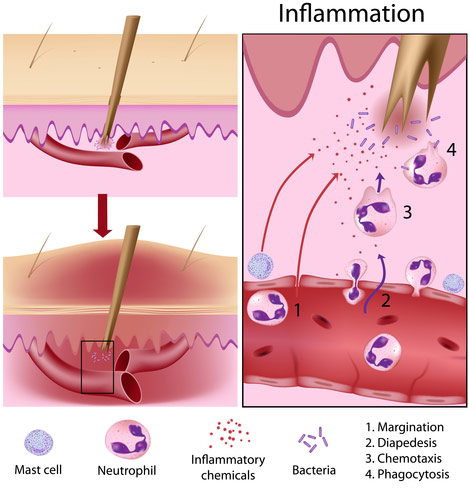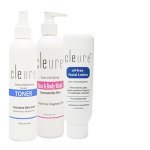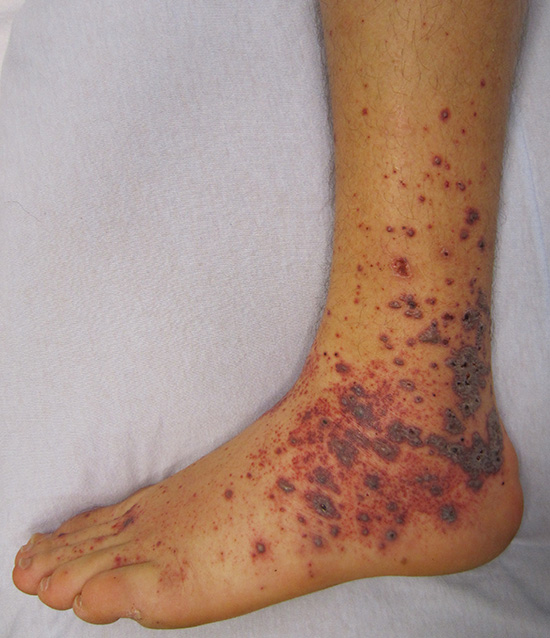Salicylates and Sensitive Skin
Tips to Help You Control Inflammation and Outbreaks
Salicylates are naturally occurring anti-inflammatory chemicals that are found abundantly in natural foods, herbs, fruits, vegetables and spices. They are also present in many personal care and skin care products, toothpastes, cosmetics, and medicines, and are also found in less healthy substances such as artificial fragrances, colorings, dyes and preservatives. Salicylates are the active ingredient in aspirin, and once in a while you will hear about someone who is allergic to aspirin. What you may not know is that they may also be allergic to the salicylates found in many of their foods, cosmetics and personal care products as well.
If you are having difficulty finding solutions to your allergies and sensitive skin, it may be useful to learn about how an over-abundance of salicylates can impact the health of your skin and your whole body.

Too Much of a Good Thing
Salicylates are everywhere, in so many of our foods and drinks and also in many of the products we rely on to look and feel beautiful. In fact, the amount of salicylates we are exposed to on a daily basis is much higher today than it was 100 years ago.
We live in a world that is already out of balance in so many ways. Our modern farming practices create genetically engineered foods which have a much higher salicylate content, and a much lower nutritional content than foods grown with more traditional farming practices.
In days past we made our own medicines, soaps and personal care products, and did not have access to the wide variety of manufactured cosmetics, shampoos, dental products and over the counter medications that we have today. Many of today's products contain much higher salicylate levels that the "old fashioned" homemade personal care products.
Allergies and Sensitivities
Most people today have not heard of salicylates because they don't have a problem tolerating them. For those of us who have allergies and sensitive skin, it's a different story! Our bodies are extra sensitive, and so small chemical imbalances can trigger a skin rash or outbreak or allergic reaction.
For this reason, when you have sensitive skin it is helpful to avoid excessive salicylate exposure as part of an overall health and wellness program. Creating balance is very important, and sometimes a challenge in today's stressful world.
If you struggle with long standing allergy problems that seem to have no solution, you may want to ask your doctor whether you may be sensitive to salicylates. The medical profession is just now learning about salicylate allergies and salicylate sensitivity, and so many doctors do not yet have a good grasp of the condition. There are some people with allergies and sensitive skin who may actually have a salicylate sensitivity without knowing it.
Symptoms of Salicylate Allergies
This is a partial list of some of the symptoms that people with sensitivity to salicylates experience. These can range from mild to severe symptoms.
Many of these symptoms are similar to symptoms of other allergies and conditions, so if you think you might be sensitive to salicylates, please see a doctor or health professional.
- Changes in skin color
- Irritated and itchy skin
- Hives, rashes and mouth ulcers
- Itchy burning, inflamed or puffy eyes
- Swelling of the face or lips
- Headaches
- Sinus inflammation
- Stuffy nose
- Asthma
- Nasal polyps
- Wheezing and coughing
- Swelling of the hands and feet
- Exhaustion
- Nausea
- Diarrhea
- Urinary incontinence
- Hyperactivity
- Depression
- Difficulty concentrating
- Memory loss
- Anaphylactic shock
Tips for Reducing Your Exposure to Salicylates
If you discover that you have a salicylate allergy, the treatment involves avoiding the substances that trigger irritation and inflammation. Your doctor will recommend specific dietary and lifestyle changes that reduce your exposure to salicylates will help you to feel better.
If you don't have a salicylate allergy, but you DO have sensitive skin that tends to break out and erupt, you may benefit from limiting your exposure to salicylates. Since they exist is so many healthy foods, the best way to avoid excessive salicylate exposure is through the medicines and personal care products you use.
Here are some tips to help you minimize the salicylates you absorb into your body.
- Avoid acne and exfoliation products that contain Beta-hydroxy acid or BHA, or salicylic acid.
- Avoid using shampoos, cosmetics, soaps and skin care products that contain artificial colors, dyes, or artificial fragrance.
- Use botanical free hypoallergenic products . Herbs, botanicals and essential oils have very high salicylate content which can cause allergic reactions.
- If you don't NEED aspirin for pain relief, try using another pain reliever such as acetaminophen or ibuprofen.
- Instead of those mentholated pain relief creams like Ben Gay, which is loaded with salicylic acid, try using a natural pain relief cream. Although these will likely contain salicylates from the herbs they contain, they will be less intense because they are in a more naturally occurring form.
- Use a salicylate free toothpaste . Most toothpastes contain not only mint, which is very high in salicylates, but also other ingredients that cause irritation and inflammation for sensitive skin.
- Avoid alcoholic beverages, coffee and tea. These are high in salicylates are not really essential for health. I know, you might love them and have trouble giving them up! The question is, how badly do you want radiant and clear skin? :-)
- Limit your use of condiments such as ketchup, jelly, vinegar, and tomato sauce. These have a very high salicylate content.
- Limit your intake of spicy foods. Herbs and spices have very high salicylate content.
- If you MUST eat candy (which really isn't good for sensitive skin!) stay away from the peppermint and licorice flavored ones.
- These are simple adjustments to your lifestyle, along with a healthy diet, plenty of pure water and exercise, will make a huge difference in the health of your sensitive skin!
What Helps Your Salicylate Allergy?
Have you discovered some tips that helped you to overcome or reduce your salicylate sensitivity? Please share them!
Salicylate Allergy Tips and Questions
Click below to see contributions from other visitors to this page...
Salicylate Allergy Questions, Tips, and Product Ideas Not rated yet
Could you send me a list of salicylate free make up and body products please?
Our reply
Hi, and thanks for your message. The most popular …
Home > Safe Cosmetics > Salicylates and Sensitive Skin
Home > Common Allergies and Symptoms > Salicylates and Sensitive Skin









New! Comments
Share your thoughts about what you just read! Leave me a comment in the box below.